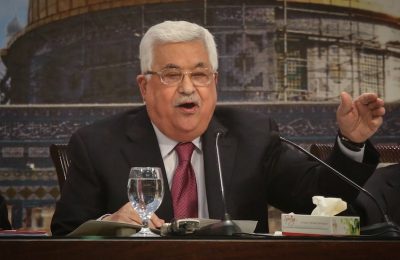 A lot has changed in the two weeks since Alan Dershowitz penned this line: “Now that Israel has a broad and secure national unity government, the time is ripe for that government to make a bold peace offer to the Palestinian Authority.” On Tuesday, when Mofaz announced that Kadima was leaving, the broad coalition quickly became a thing of the past. Apparently it wasn’t all that secure; then again, using the word “secure” when discussing Israeli politics is a bit naive.
A lot has changed in the two weeks since Alan Dershowitz penned this line: “Now that Israel has a broad and secure national unity government, the time is ripe for that government to make a bold peace offer to the Palestinian Authority.” On Tuesday, when Mofaz announced that Kadima was leaving, the broad coalition quickly became a thing of the past. Apparently it wasn’t all that secure; then again, using the word “secure” when discussing Israeli politics is a bit naive.
Nevertheless, despite the opening salvo being relegated to the dustbin, Dershowitz’s article, “A Settlement Freeze Can Advance Israeli-Palestinian Peace“, is well worth reading, and in an ideal world, implementing. The timing is
Dershowitz’s plan, which appeared on the Gatestone Institute website, is beautiful in its simplicity. First, Israel agrees to a conditional settlement freeze that would go into effect the moment Palestinians sit down at the table, “and the freeze will continue as long as the talks continue in good faith.” Contingency in place.
Second, defining the rough borders of Palestine, which means dividing the West Bank into three regions:
- Areas that will likely remain part of Israel, such as Ma’ale Adumim and Gilo
- Areas that are likely to become part of Palestine, such as Ramallah, Jericho, and the vast majority of areas heavily populated by Arabs.
- Areas reasonably in dispute, including some of the large settlement blocs near Jerusalem, such as Ariel.
If agreement can be reach on these three divisions, then the the logic of Dershowitz’s plan really kicks into place. No Israeli building would take place in land assigned to Palestinians, and conversely, there would be no limitations on building in areas demarcated as Israeli. The freeze would continue in the disputed areas until decisions are reached as to what will be Israeli or Palestinian. “As portions of the disputed areas are allocated to Palestine or Israel, the building rules would reflect that ongoing allocation,” writes Dershowitz.
Dershowitz’s plan removes the settlement issue as a bargaining tool and puts the good faith of Palestinian negotiators to the test. They’ll have gotten their precondition – will real peace negotiations follow?
Of course any settlement freeze is difficult for some Israelis to accept, especially those living deep in the West Bank in areas not likely to remain part of Israel in any final settlement. But as Dershowitz writes, it would be one of the “painful but necessary compromises” Netanyahu has stated that Israel is ready to make.
Events of last week showed just how short the shelf life is in Israeli politics. Dershowitz’s plan may no longer even be possible. But what do you make of it? Brilliant? Optimistic? Naive?












